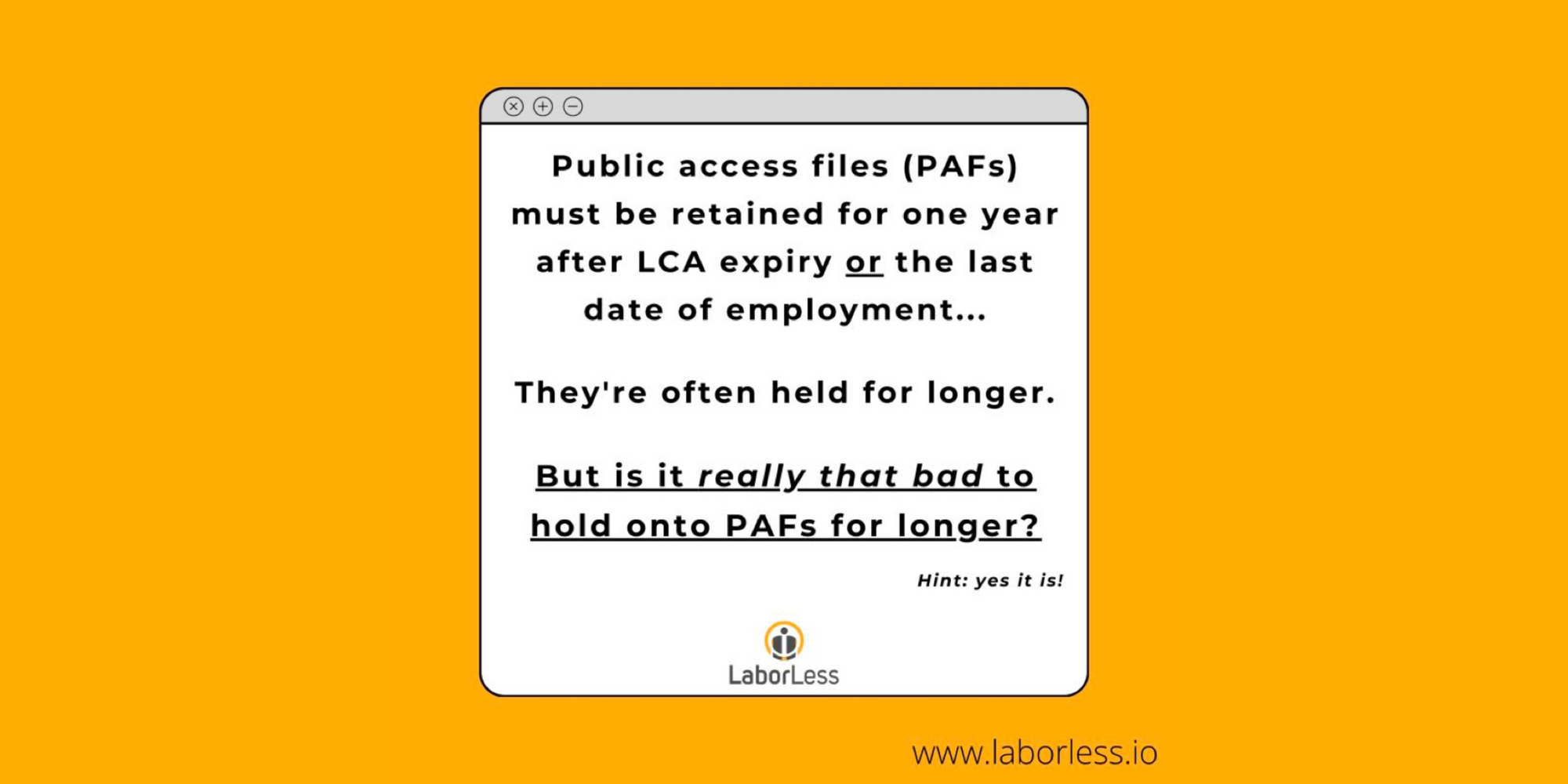It's no secret that many H-1B employers hold onto public access files (PAFs) for too long and that many immigration law firms don't perform regular PAF audits. But is holding onto PAFs for longer than necessary actually that bad? Or is it acceptable, or perhaps even preferred in some instances?
This blog explores the question of PAF retention, whether it's good or bad to hold onto PAFs for longer "than necessary," and how electronic PAF management can make compliance with retention regulations simpler.
First, what do DOL regulations say about PAF retention?
20 CFR § 655.760, which is the federal regulatory language regarding availability and retention of H-1B-related records, says that PAFs are to be retained
for a period of one year beyond the last date on which any H-1B nonimmigrant is employed under the labor condition application or, if no nonimmigrants were employed under the labor condition application, one year from the date the labor condition application expired or was withdrawn.
This is a minimum required retention period that can, in theory, be exceeded. Thus, as far as I'm aware, there is no actual penalty for retaining PAFs for longer.
But are there risks associated with holding onto PAFs for longer than necessary?
Most immigration lawyers will tell you that you won't get a prize for holding onto PAFs for longer than you need to. Instead, they may say, as long as a company is compliant with DOL's PAF retention regulations, they are fulfilling their compliance obligations and thus should not hold onto any information or documentation longer than is necessary. Why? In part because retaining records for longer than necessary opens a company up to unnecessary risk in the event of an audit or other such government request.
Specifically, the risk here is that, in the event of an audit, DOL may potentially be able to view PAFs that are technically past their required retention period but are, nevertheless, still in a company's possession. And if any of those PAFs uncover prior wage-related issues or any other violations, the H-1B employer can face unneeded scrutiny, fines, or worse.
Indeed, LCA- or PAF-related fines can range from approximately $2,000 to approximately $55,000, as well as potential payment of back wages and, at worst, disbarment from the H-1B visa program altogether.
So why do companies often hold onto PAFs for longer than they need to by law?
The most common answer is that it's simply too cumbersome, or expensive (or both), to go through a proper PAF audit, especially for higher-volume companies, and especially since most employers have paper-based PAFs that are costly and time-consuming to review and self-audit.
Or, on the rare occasion that their PAFs are electronic, they sit in a digital folder without any system tracking retention dates or automatically destroying those PAFs that need to be destroyed.
And that's exactly the problem that LaborLess solves!
LaborLess provides electronic PAF retention for ease of use and enhanced compliance
We built LaborLess based on my experience as an immigration attorney handling high-volume H-1Bs and thus the LCA and PAF compliance processes that came along with it in order to help companies, and immigration law firms, automate their LCA and PAF process.
Indeed, one of the features we've had from the beginning is a PAF "expiry" date tracker, that automatically deletes PAFs once they reach their expiration date.
If you want to learn more about LaborLess, check out our product demo to see how the platform works, and of course please reach out if you'd like to learn more!

